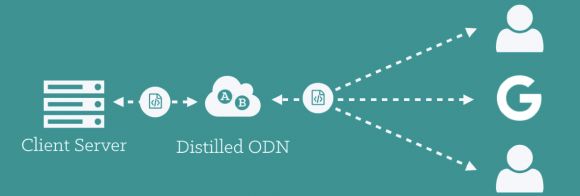
Related Questions Grow +500% in 5 Months
Technical SEO | Search EnginesIn the past 5 months since their roll-out, Google's Related Questions ("People Also Ask") have grown over 500%. This post details their growth and evolution.

In the past 5 months since their roll-out, Google's Related Questions ("People Also Ask") have grown over 500%. This post details their growth and evolution.

Google is increasingly relying on machine learning and artificial intelligence, making ranking factors harder to understand, less predictable, and less uniform across keywords. It's becoming such a complex system, that we often can't really know how a change will affect our own site until we roll it out. In this environment, we'll need to use split-testing more and more.

How do you keep track of all the data that supports your business intelligence? Ian Watson walks us through setting up a live reporting dashboard that integrates your favorite APIs into an easy-to-visualize format.

Persona research takes time, but we don't always have a ton of that. Using a few free APIs, Followerwonk, and a Python script built by Craig Bradford, you'll be able to get some great top-level insight into your audience on the fly.

RankBrain. We know it happened, but beyond that, the details of this Google algorithm update are largely a mystery. What is RankBrain, what does it do, and is it even possible to optimize for it? Join Gianluca Fiorelli as he outlines what we do know and ponders the possibilities of what we don't.

If you want to rank as well as you possibly can, unblocking JavaScript and CSS is one of the easiest SEO changes you can make—especially for those with a significant amount of mobile traffic. Jennifer Slegg shares the warning letter many SEOs and webmasters received from Google about this, and goes over the hows and whys of unblocking JS and CSS files on your site.

Ever found yourself copy and pasting data, wishing there were an easier way? Take a foray into the world of data scraping using Google Sheets with Jeremy Gottlieb!

A waterfall diagram, such as those produced by WebPageTest, is a powerful indicator of optimization opportunities. Do you know how to read them?

While SEO is a different field than it once was, technical chops are still required to do things really well. In today's Whiteboard Friday, Rand pushes back against the idea that those skills are no longer necessary.

Site performance has an undeniable impact on user experience and search rankings, and in this post, our friends at Zoompf show us how to use a fantastic free tool to see how we're doing.

With the increasing number of SEO directives and annotations available, and the ever-changing guidelines around how to deploy them, it is important to automate whatever areas possible. In this blog post I'm going to share an open source Python library which makes it easy to read the hreflang entries from a page and identify errors with them.

The movement to make the Internet more secure through HTTPS brings several useful advancements for webmasters. Sadly, HTTPS also has its downsides, including the loss of referral information. Enter the meta referrer tag.

June 16, 2015 marked one of the hottest days on MozCast. Was this a change in Google's HTTPS algorithm, or the aftershock of waking the Wikipedia giant?

This recent study unravels some of the mystery behind the sitelinks searchbox and shines a light on some areas website owners can exploit for possible success.